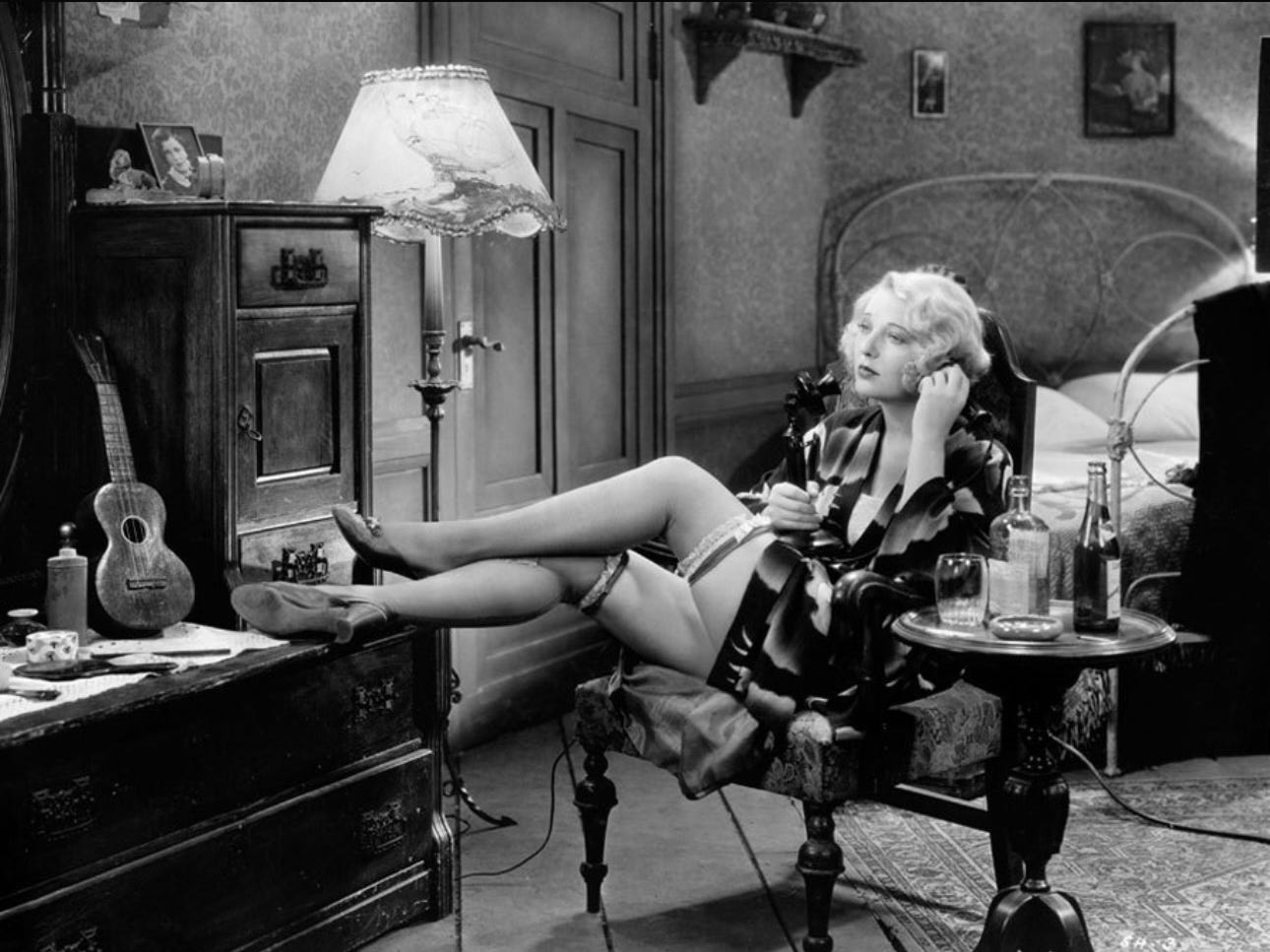The Motion Picture Production Code, more commonly known as the Hays Code, was a set of guidelines imposed on all films produced in the United States from 1934-1968. Before its implementation, Hollywood was regarded as a seedy, immoral industry that did not uphold traditional Christian values. The movies from this time period are incredible.
A few months ago, the Criterion Channel added a collection called Precode Divas. The films featured women who were unapologetically bold. The stars included Mae West, Barbara Stanwyck, and Joan Blondell. All of these women had a confidence in their sexuality that feels like a reckoning on screen. I watch with astonishment as I feel a kinship that spans nearly a century. But then, it devolves into sadness. How does this exist? And how do I? I can’t help but feel in a state of inertia. There was a brief moment in Hollywood history in which women existed as complicated beings. This feels like a rarity in 2024. And when it does try to exist? It’s exhaustingly tied up with capitalism and girl-boss messaging.
Many of these movies could be considered romantic in genre and they are— though that feels like a shortchanging. In Baby Face, Barbara Stanwyck’s Lily escapes her abusive father in search of independence. Utilizing her sexuality and resourcefulness from living under abuse, she is able to move up in the corporate world. Gold Diggers of 1933 follows three showgirls during the Great Depression who enlist a wealthy songwriter to fund a new musical when theirs shuts down. What these movies have in common is that the women use men to gain financial mobility but they aren’t made to feel shame about it. Their romantic pursuit is secondary and in the end, they choose to have both.
What ignited this newsletter was a viewing of a film called Safe in Hell. I had never heard of it, but Karina Longworth had highly recommended checking it out before leaving the Criterion Channel. It also being part of the Precode Divas selections, my interest was piqued.
It is a story about Gilda, a woman who is wanted for the murder of her pimp after he assaults her. Shortly after, her beloved Carl returns home from being overseas and she discloses her predicament. They run away to a Caribbean island that is a known refuge for criminal exiles. Gilda promises “to be good” while Carl returns to the sea to earn money for their future. She believes being good means sequestering herself in her room and staying away from the other convicts. However, she soon decides to join the men and finds herself forming friendships with them—with the exception of a sinister hangman. Some time later her pimp is seen arriving on the island as he has staged his death and taken the life insurance money. Once Gilda discovers this, she realizes she can be a free woman and return to America. She confronts him and there is a struggle. He attempts to assault her and she shoots him in self-defense. Gilda is put on trial with the hangman as a key stakeholder and influencer for her fate. He tells her that he will ensure her freedom if she agrees to live as his wife for the rest of her days. Gilda refuses and chooses to be sentenced to death. She declares that she would rather die than give up her freedom to another man who will keep her as prisoner.
To some, this may read as dispiriting. But to me? It felt wildly empowering. A woman choosing her fate and that fate not revolving around a man. A woman refusing to no longer be a vessel for a man’s sexual and domestic desires. It may be strange that I shared this movie in almost its entirety. But this movie is no longer available to be watched digitally. Maybe one can find a blu-ray at their library or online— though not very likely. I wanted others to know that women’s stories were told in such a way in 1931.
Here is a list of some of my favorite Precode movies featuring awe-inspiring female performances:
Xoxo
Lauren



This is so great. Definitely diving into pre-code diva movies.
I love these pre-code movies and I’m so grateful you mentioned Safe in Hell when it was still on Criterion! What a film!